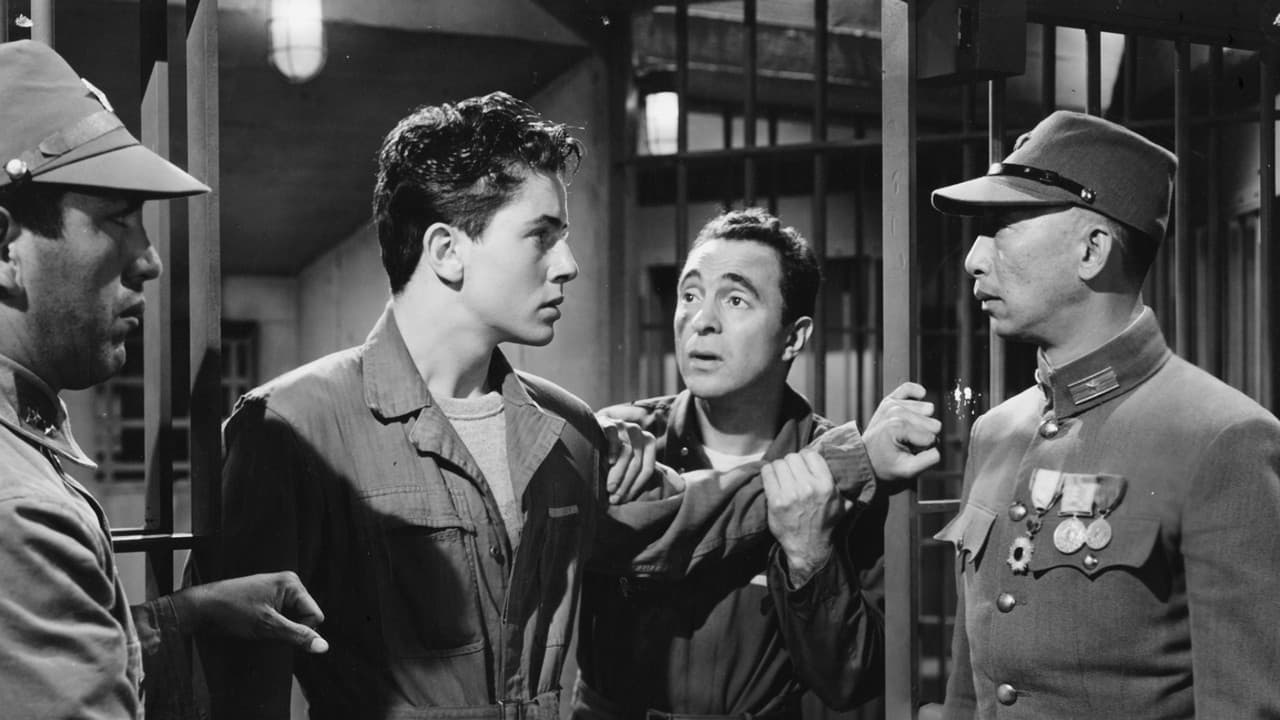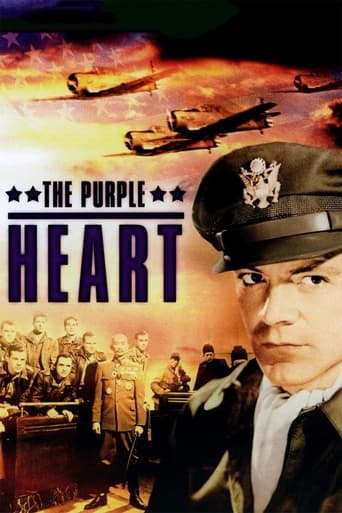

First, let me start by saying that I was ten years old when this film was made. I knew nothing of the war. In retrospect, I have some confusion and a touch of anger when reading some of todays reviews. Most war films offer a message to make their point. Films such as Platoon,numerous Vietnam epics, Korean War films such as Pork Chop Hill.and The Steel Helmet all deliver messages in fine fashion.As a lad of eighteen, I was influenced by Sands of Iwo Jima to join the Marine Corps.Im sure it had the same effect on a lot of other teen agers. Now to The Purple Heart. Made during the war years. it tells of a bomber crew downed in China after a raid on Tokyo. Dana Andrews is the stalwart Captain who delivers the Message at the trials conclusion. As they march out to their doom, strains of Wild Blue Yonder swell in the background. Sure its propaganda, but things like that were needed during the war years. The cast, including Richard Loo as a Japanese General are uniformaly excellent.Under Lewis Milestones direction, this movie becomes a minor classic. To those who nit pick about the errors in these films, take a break! Enjoy them as a vital part of history. Many of them served a purpose and served them well.
... View MoreLewis Milestone shows a bit of diversity in his opinions in war through this movie. Whereas "All Quiet on the Western Front" is a powerfully sympathetic anti-war message, "The Purple Heart" is a somewhat jingoistic outcry against Japanese Imperialism and their lack of regard to human rights. The sentiments are similar in some ways, but for the most part this movie is almost a call to arms.The story is of a group of American bombers captured by the Japanese and put on trial as war criminals. While the action contains itself to the hearing and the prison walls, it's a dramatic and tense film, despite its obvious Orientalism (probably as a result of this movie's real-life ties to a similar trial early during the US involvement in WWII) and anger. Sometimes, however, Milestone goes into maudlin impressionistic asides to the characters' civilian lives, a sentimentality that this film really doesn't need. It works best when confined, and shows remarkable versatility by the blocking and organization of the drama in such small and limited spaces. The cut-aways to outside things do have their place in character development, but is often a lot less interesting than the imprisonment on hand.--PolarisDiB
... View MoreThis film is so good, it makes you want to drop another bomb on them! After reading the book FOUR CAME HOME, which tells the story of one of the two B-25 crews that had to crash-land in China after the Doolittle raid on Tokyo (Cook 'Em!), I was very impressed by this film and how 95% of it stuck true to the story. So I did some research and also learned that the Argentinian and Russian reporter's roles, other than the name changes, were very factual in that both were eventually appalled at the Japs utter disregard for the Geneva Rules and Legal Rules in general and how the men were treated, and a good deal of the information in FOUR CAME HOME was supplied to the author from these two reporters. Yeah, the Japanese were a WONDERFUL race of people, weren't they? Watch this film, knowing its true nature, and you won't think so anymore.
... View MoreThis is a beautiful movie. The story is about what happens to the captured crew of an American Army Air Corps bomber in Japan during WWII.The performances of the actors are excellent and deeply felt (remember that it was filmed during the war). Once you have watched the first 30 minutes, you must stay to learn their fate at the hands of the Japanese.
... View More